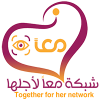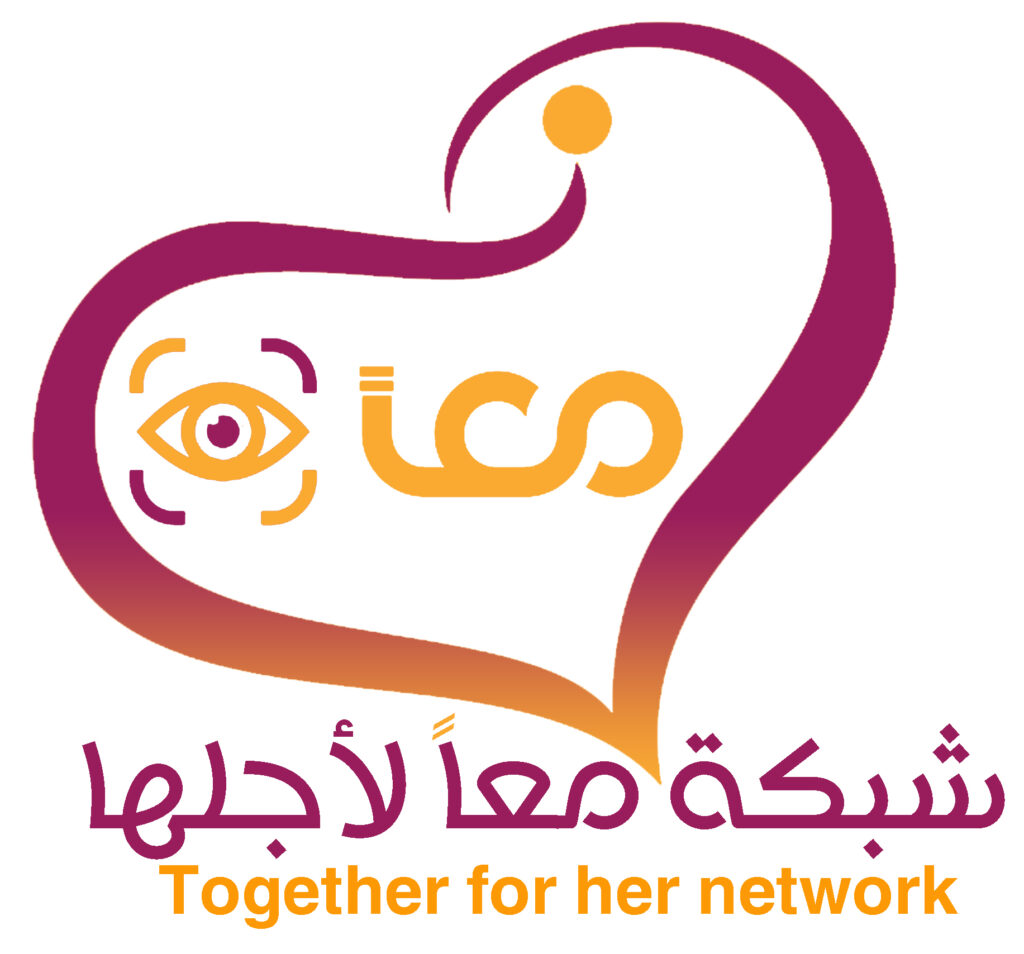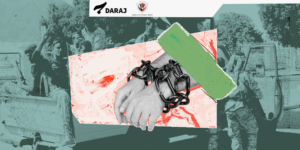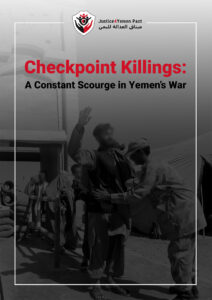Karima, a six-year-old girl, has come from Hajjah with her family her father was deaf; they were looking for safety. Their journey was not that easy for them, but it was much more difficult for Karima because she has been suffering from HEMOLYTIC ANEMIA since birth. She also needs to exchange blood transfusions twice a month.
Mukalla – Ibn Sinai Camp for Displaced People – Together for Her Network
Now, Karima is nine years old, she sells tissues and water at Ibn Sina Junction. If you look closer at her, you will find the signs of childhood, which are mixed with sorrow and fatigue on her face, and her tan cheeks, which have been burned from the sun’s rays. A flashback to the time that Karima and her family left their home In Hajjah because of the bombardment of the city. They and thousands of families have left their homes to find a way to survive so they have been displaced to any neighboring place they can live. That was not a matter of choice but it is happen by force. Karima had to move to Hadhramaut; she was looking for safety besides the free health services to take good care of her health and to facilitate the exchange of blood transfusion.
Her father said, “We have decided to go to Hadhramaut, because we have heard that that the camp of displaced people is located next to the hospital, so we thought that it will help us, but when we arrived, all our dreams disappeared. The hospital did not accept Karima’s cases, and they transferred us to Mukalla Hospital for Motherhood and childhood downtown” However, it was far away and we did not have the cost of transportation to go there. We have left our house by force to survive and we had left everything behind, except only the clothes that we wear.
Karima’s health deteriorated and she has gone to the hospital continuously for exchange blood transfusion, her spleen became enlarged, and she was suffering from severe pain, her stomach swollen in front of her, as if she was carried a large weight that exceeds her weight ten times due to an enlarged spleen, which prevented her from enjoying her childhood. He has a problem with hearing, as he can hardly hear voices. He is old and exhausted by the war. His grief over losing everything has burdened, and Karima’s pain has the father feel more helpless. He has done everything to look for someone to help him, share their sympathy with him, and help him in the treatment costs.
It was decided to remove the spleen urgently, but she must inject Karima with the vaccine a month before the operation to avoid any complications. Again, life did not give them what they want. Therefore, the war and its effects are still chasing and besieging them, and fear fills the hearts of the family of losing her thereby, they will lose another family member.
The biggest obstacle that they faced was the monthly treatments and the exchange of blood transfusion and blood. That made the elderly father stand on the sidewalks asking for money for Karema’s treatment and a living for his family. The monthly food basket inside the camp that was provided was not enough. Although the loud cry of Karema’s pain in the darkness of the war with its effects, the light of hope has lightens the path for her and gives her hope that in times of war, there are not only many merchants of wars and weapons and those who eat people’s rights, but also there are many honest and sincere people seeking to mitigate the effects of war on their society.
As they are a miracle for Karima to blood transfusion and provide free and nonstop treatment needs. Karima felt that the war and destruction that forced her to leave her doll at home were unable to silence her heartbeat and her dream of innocence to play with the other children. After Karima received the free treatment and the blood transfusion each period was shaving her little body, which left complications in her body It is characterized by severe emaciation, as it results in an enlarged spleen, leaving a great weight that Karima carries with her all the time… The operation to remove the spleen must be done as soon as possible, or Karima will lose her life and childhood.
Here and in these moments, the nightmare of war appears to her again. The war will not leave Karima alone, enjoying her life and playing with her peers. Everywhere, I heard her innocent voice when she said, “I miss my doll.” The vaccine is not available for a period. It has not been imported, or the health office’s allocations have not been sent from it, due to the intensification of the confrontations and the cessation of its supply to the governorate under the war. several merciful female doctors decided to stand up for Karima and save her life, led by Iman, a pediatrician who was known for her devotion to blood-sick children and their advocacy and endeavor to reduce their pain. Iman and her colleagues had only one option, which was to smuggle the vaccine from any of the neighboring countries for Karima to save her life. She had contacted philanthropists and her colleagues and gathered as much money as they could, and they bought the vaccine and followed closely until it arrived in Mukalla. Karima was given the vaccine, and Iman arranged with several good doctors to operate on Karima for free and voluntarily. A month after her spleen was removed, I saw her face was bright, she was playing with the dolls as a present from the doctors, and she was very happy. Expressions of gratitude appeared on her face for everyone who reduced her pain.
I visited her afterward while she was in the camp, and she was playing with her peers in the camp, she was happy with her health. I thanked ALLAH for His generous mercy and for facilitating her treatment.
After I thought that a decent tragedy had ended, and all the signs of pain and misery that she suffered from the last time would end with her. However, the war is still chasing Karima, so how will she survive her siege, how will she prevent herself from being one of its victims? I saw her three years after the operation, standing on the corner of the road selling tissues and water, and her face turned pale and wilted, and signs of sadness appeared on her face again, as she stayed for more than 10 hours. On the corner of the road, I saw her as if it was my first meeting with her when she was displaced from her governorate… I had several questions in my mind: Why are you here, Karima? Why didn’t you go to school? Why are you tired in this way? Many questions came to my mind from the first moment I have seen her. She greeted me and smiled at me, and after three years, she still tells me ‘thank you for what you gave me in the hospital”.
She answered all my questions without asking her and without intending to answer me (she said my father has grown old and no one helps us to support the family so I had to go out with my brothers to help them and leave school, I must work to not die of hunger, forgive me, doctor, I wish to make you happy and see me as you dreamed, but my fate was imposed on us by the war, which is to struggle to help my family who was struggling for me to not die of illness.
She smiled at me when I hug her, our eyes are overflowing with tears and our inner voices echoed, “When will this war stop when we will live a normal life when we fell of stability?” When will Karima and the other children who have been displaced in looking for stability and safety when they will have their right to education, their right to treatment, their right to respect for their dignity, and their right to life?
I have driven my car and gone with inner pain and I hope that the last time to see another karma story in life.




